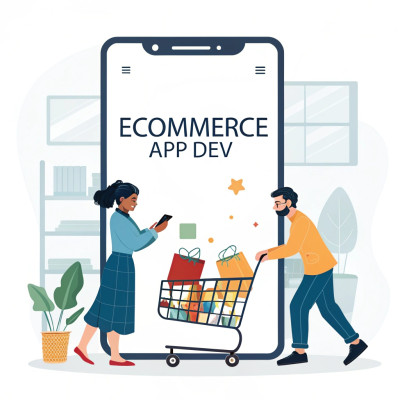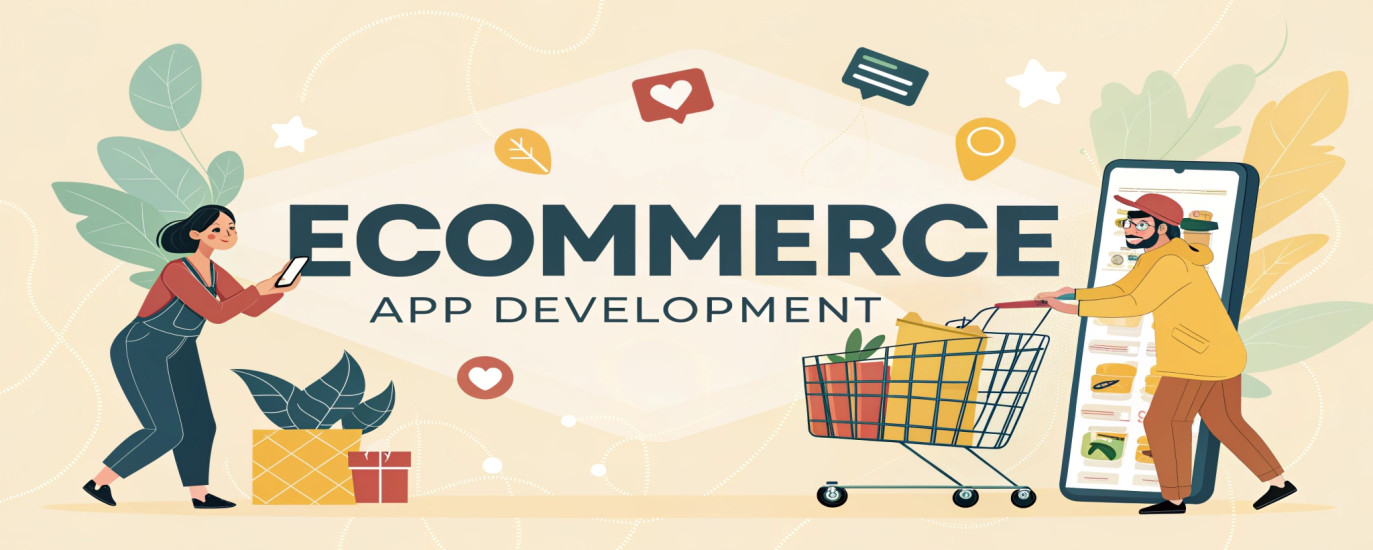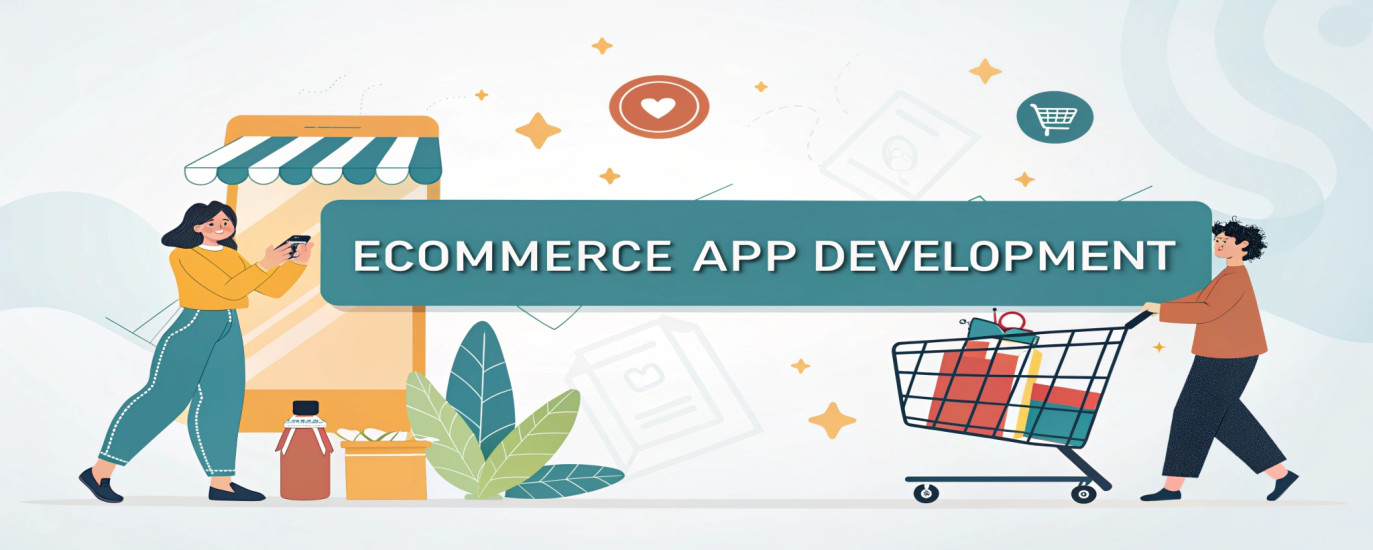Ecommerce App Development: Code, Create, Captivate
We have engineered several leading and secure apps that have allowed businesses to accelerate their growth and fully thrive. With us, you get cutting-edge development.
Get a Free Consultation
We Offer,
Ecommerce App Development

Wix eCommerce
Wix eCommerce is a user-friendly platform for creating and managing online stores, offering customizable templates and drag-and-drop tools. It supports features like product management, secure payments, and marketing integrations for seamless business growth.

Kotlin
Kotlin is a modern, statically typed programming language designed for interoperability with Java and optimized for Android development. It offers concise syntax, enhanced safety features, and boosts developer productivity.

Flutter
Flutter is an open-source UI framework developed by Google for building natively compiled applications for mobile, web, and desktop from a single codebase. It offers a fast development cycle and expressive, flexible UI components.

Ruby
Ruby is a dynamic, open-source programming language known for its simplicity and productivity. It emphasizes readability and supports web development through frameworks like Ruby on Rails.

Swift
Swift is a powerful, intuitive programming language developed by Apple for building iOS, macOS, watchOS, and tvOS apps. It offers modern features, safety, and performance, making it beginner-friendly and efficient for developers.

Python
Dedicated assistance whenever you need it, ensuring a smooth and hassle

Big Commerce
BigCommerce is a scalable, cloud-based eCommerce platform that enables businesses to create and manage online stores. It offers customizable templates, multi-channel selling, secure payment options, and robust integrations for seamless growth.

Shopify
Shopify is a popular cloud-based eCommerce platform that allows businesses to easily create and manage online stores. It offers customizable templates, secure payment options, and a range of tools for inventory management, marketing, and customer engagement.

React Native
React Native is an open-source framework developed by Meta for building cross-platform mobile applications using JavaScript and React. It allows developers to create native-like apps for both iOS and Android using a single codebase, offering performance close to native apps.

Laravel (PHP)
Laravel is a popular open-source PHP web framework designed for building modern, robust web applications. It follows the Model-View-Controller (MVC) architecture and offers features like routing, authentication, and an ORM (Eloquent) to simplify development and improve code maintainability.

GitLab CI/CD
GitLab CI/CD is a built-in continuous integration and continuous delivery feature within GitLab that automates the process of building, testing, and deploying code. It uses YAML configuration files to define pipelines, jobs, and stages, and integrates seamlessly with GitLab repositories to enable automated DevOps workflows.

JSON
JSON (JavaScript Object Notation) is a lightweight, text-based format used for storing and exchanging data, easily readable by both humans and machines.

TypeScript
TypeScript is a superset of JavaScript that adds static typing, making it easier to catch errors and improve code quality during development.
About This Service
Overview of Ecommerce App Development
Ecommerce app development is the process of creating mobile apps that allow users to shop online with ease. Key features include product browsing, order placement, secure payment processing, cart management, order tracking, and customer account management. These apps deliver a smooth shopping experience by integrating essential ecommerce functionalities. Here’s an overview of the core elements involved in ecommerce app development
1. Defining the Business Model and Features
The first step in ecommerce app development is to define the business model (B2B, B2C, C2C, etc.) and the key features the app will offer. Essential features often include:
- Product Catalog: Showcases products with images, detailed descriptions, and pricing information.
- Search and Filters: Features that help customers quickly locate products using keywords, categories, and customizable filters.
- Shopping Cart: A feature that allows users to review and manage selected products before proceeding to checkout.
- Order Management: Provides customers with the ability to monitor their orders, review past purchases, and initiate returns.
2. Choosing the Right Development Approach
Developers can choose from various approaches for building the app:
- Native Development: Building separate apps for iOS (using Swift) and Android (using Kotlin or Java) for optimized performance.
- Cross-Platform Development: Using frameworks like React Native or Flutter to create a single codebase that works across both iOS and Android.

Our Process
Our experts create a full brief of your requirements and ideas. We translate these into technical documents and early-stage prototypes. We gather a team and build an initial design to lay the foundation for the entire project.

KICK-OFF STAGE
Leverage agile framework to provide a robust high level synopsys overviews

DEVELOPMENT STAGE
Bring to the table survival strategies to ensure proactive domination

SUPPORT STAGE
Grow the holistic world view of disruptive innovation workspace
Questions You May Have
We develop native apps for iOS and Android, hybrid apps, and cross-platform solutions that work seamlessly across different devices and operating systems.
We use a range of languages, including Swift for iOS, Kotlin for Android, and JavaScript frameworks like React Native for cross-platform apps.
Yes, we can build apps that provide offline functionality, ensuring a seamless user experience even without an internet connection.
We conduct rigorous testing, including functionality testing, usability testing, performance testing, and compatibility testing across devices and operating systems.
Reach & Get in Touch With Us!
We'd love to hear from you. Please fill out the form below.
Got a Project ?




Stay Updated with the Latest News and Insights
Subscribe to our newsletter for exclusive updates, expert insights on innovative solutions, the latest tech trends, industry news, and special offers from TecishSol.




